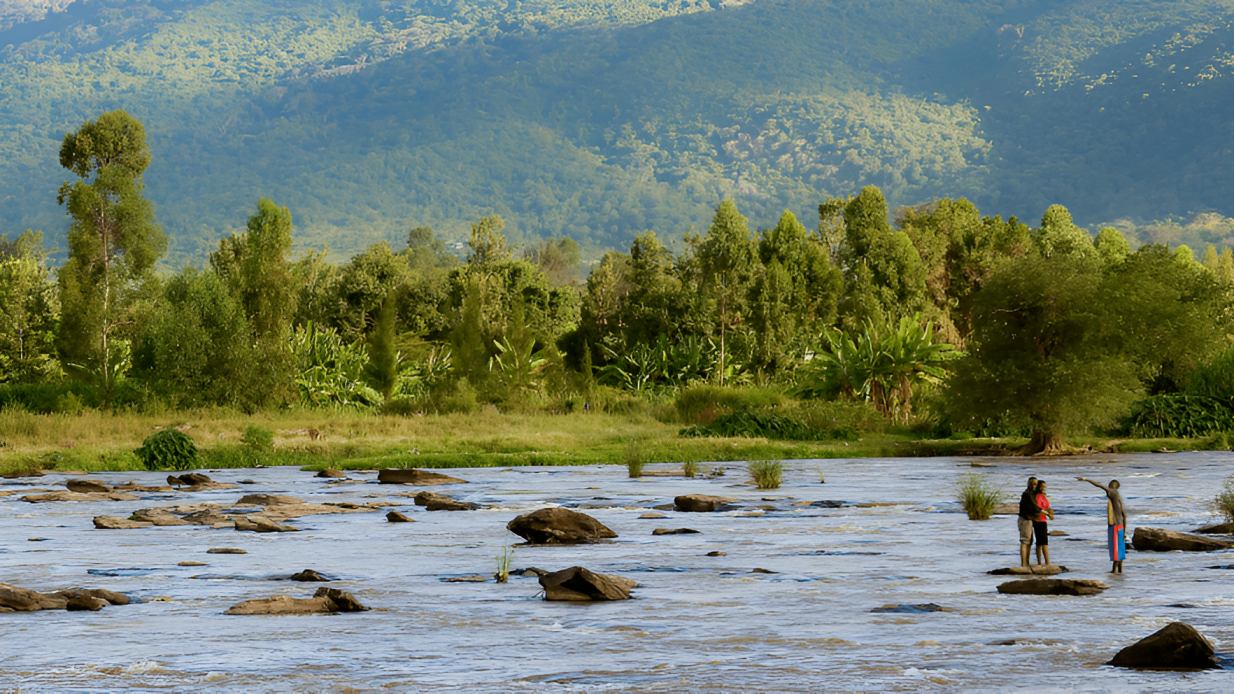Mavoko residents plant Bamboo trees to restore polluted Athi River

The community has voiced concerns over ongoing pollution that poses serious risks to the health and livelihoods of thousands who depend on the river downstream.
Residents of Mavoko in Machakos County are urging the county government to take decisive measures against factories releasing untreated waste into the Athi River.
The community has voiced concerns over ongoing pollution that poses serious risks to the health and livelihoods of thousands who depend on the river downstream.
Led by the KISAKA Foundation, residents organized a tree-planting drive along the Athi River this week, planting bamboo trees as part of a broader plan to restore the river’s ecosystem and highlight the impact of industrial pollution.
"Today, we are working to clean this river not only for ourselves but for everyone who relies on it downstream," said John Kakui, Chairperson of the KISAKA Foundation.
He added, "We have contacted the companies responsible for the pollution, but most of our efforts have been ignored."
Forestry experts from the Kenya Forest Service (KFS) explained that bamboo trees were chosen for their excellent water retention and pollutant filtration properties.
"Bamboo is perfect for riparian areas," said KFS researcher Jimmy Maison. "It helps prevent erosion, absorbs harmful toxins, and improves soil health."
The project is backed by Green Africa Group, which aims to extend similar environmental restoration efforts throughout the Lower Eastern region.
Organizers believe that with proper rehabilitation, the Athi River could become a key source of irrigation water, helping the area tackle ongoing droughts and food insecurity.
While many polluting companies have yet to respond, residents noted that some firms have installed wastewater treatment systems.
Vivian Nabuso from the Export Processing Zones Authority (EPZA) stated, "We make sure our wastewater is treated before it is released into the river."
However, Kakui emphasized that more action is needed: "We commend those complying with environmental laws, but the government must take tougher measures against habitual polluters. The river should never be treated as a dumping site."
This community-driven initiative represents a grassroots demand for sustainable development and environmental responsibility, with hopes that both government and private sector actors will act to safeguard one of the region’s most important natural resources.
